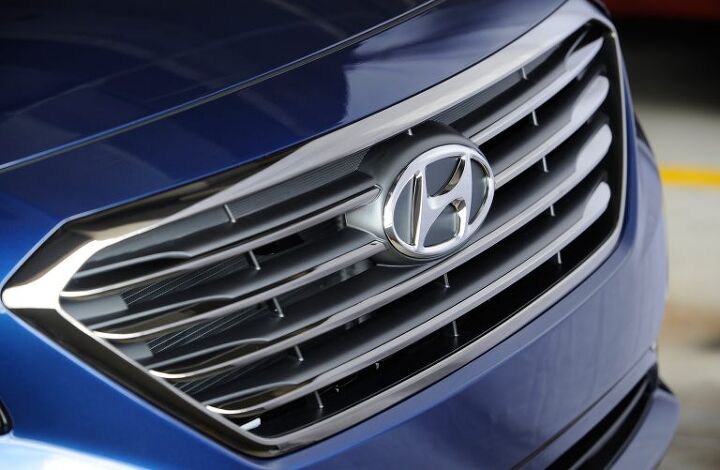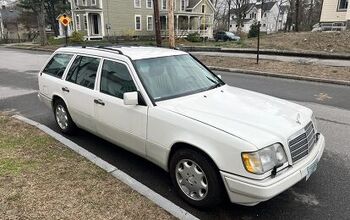South Korean Hyundai Workers Didn't Strike This Year!

After eight consecutive years of striking, South Korean Hyundai employees decided to take a season off. Preliminary reports are indicating that the workers’ union has reached a tentative wage agreement with the automaker, resolving any need to picket.
Top-notch negotiating skills likely played a role, but union members also noted that it was best not to temp fate. According to Reuters, the group said it had considered “the uncertain political and economic situation” before agreeing to terms. That’s a reference to the degrading political situation between South Korea and Japan, as well as the ongoing Sino-American trade war.
While we’ve routinely covered the trade war, the diplomatic situation between South Korea and Japan falls mostly outside the purview of automotive news. In 2018, South Korea demanded damages from Japanese companies that engaged in forced labor during World War II. Convinced it has placed its historic misdeeds behind it, the Land of the Rising Sun said that matter had been settled in the decades following the war.
Obviously, relations did not improve. This year, Japan deiced to impose export restrictions on materials essential in the manufacturing of semiconductors — which is a big deal for the nation Samsung and LG call home. It also removed South Korea from its list of trusted trade partners. In response, Seoul terminated its intelligence-sharing pact with Tokyo and started conducting military drills around a series of islands controlled by Korea by claimed by Japan.
That, in addition to complications stemming from the trade war between the United States and China, has been dimming South Korea’s economic outlook.
Hyundai said the deal was reached to ensure both employees and the company could survive into the future. “We have focused on escaping social isolation,” the South Korean union said in a statement.
From Reuters:
Under the latest wage agreement, each unionized worker will receive a one-off payment of up to 9 million won ($7,414), an additional payment equivalent to one and a half months’ salary, 15 Hyundai Motor shares, and a basic salary increase of 1.74 percent.
The basic salary increase is the lowest since at least the 2009 global economic downturn.
Hyundai’s unionized workers in South Korea have staged strikes in all but four years since the union was created in 1987. But the union has faced growing public and media criticism for walking out of wage talks despite workers’ relatively high pay and at a time of economic slowdown.
The labor agreement is subject to final approval from union members in a vote on Monday but it already looks like a done deal.
Taking a moment to enjoy the silver lining, unionized employees still got some cash and Hyundai’s domestic sales are expected to improve in the short term as Koreans boycott Japanese automobiles due to the degrading political situation. Export numbers are also on the rise in the West thanks to the company expanding its portfolio to include more crossover models. Hyundai’s grip on the U.S. market loosened in 2017 and 2018, but 2019 is shaping up nicely. While the same cannot be said for the Chinese market, Europe has remained relatively stable through the first half of the year.
[Image: Hyundai]

A staunch consumer advocate tracking industry trends and regulation. Before joining TTAC, Matt spent a decade working for marketing and research firms based in NYC. Clients included several of the world’s largest automakers, global tire brands, and aftermarket part suppliers. Dissatisfied with the corporate world and resentful of having to wear suits everyday, he pivoted to writing about cars. Since then, that man has become an ardent supporter of the right-to-repair movement, been interviewed on the auto industry by national radio broadcasts, driven more rental cars than anyone ever should, participated in amateur rallying events, and received the requisite minimum training as sanctioned by the SCCA. Handy with a wrench, Matt grew up surrounded by Detroit auto workers and managed to get a pizza delivery job before he was legally eligible. He later found himself driving box trucks through Manhattan, guaranteeing future sympathy for actual truckers. He continues to conduct research pertaining to the automotive sector as an independent contractor and has since moved back to his native Michigan, closer to where the cars are born. A contrarian, Matt claims to prefer understeer — stating that front and all-wheel drive vehicles cater best to his driving style.
More by Matt Posky
Latest Car Reviews
Read moreLatest Product Reviews
Read moreRecent Comments
- Amy I owned this exact car from 16 until 19 (1990 to 1993) I miss this car immensely and am on the search to own it again, although it looks like my search may be in vane. It was affectionatly dubbed, " The Dragon Wagon," and hauled many a teenager around the city of Charlotte, NC. For me, it was dependable and trustworthy. I was able to do much of the maintenance myself until I was struck by lightning and a month later the battery exploded. My parents did have the entire electrical system redone and he was back to new. I hope to find one in the near future and make it my every day driver. I'm a dreamer.
- Jeff Overall I prefer the 59 GM cars to the 58s because of less chrome but I have a new appreciation of the 58 Cadillac Eldorados after reading this series. I use to not like the 58 Eldorados but I now don't mind them. Overall I prefer the 55-57s GMs over most of the 58-60s GMs. For the most part I like the 61 GMs. Chryslers I like the 57 and 58s. Fords I liked the 55 thru 57s but the 58s and 59s not as much with the exception of Mercury which I for the most part like all those. As the 60s progressed the tail fins started to go away and the amount of chrome was reduced. More understated.
- Theflyersfan Nissan could have the best auto lineup of any carmaker (they don't), but until they improve one major issue, the best cars out there won't matter. That is the dealership experience. Year after year in multiple customer service surveys from groups like JD Power and CR, Nissan frequency scrapes the bottom. Personally, I really like the never seen new Z, but after having several truly awful Nissan dealer experiences, my shadow will never darken a Nissan showroom. I'm painting with broad strokes here, but maybe it is so ingrained in their culture to try to take advantage of people who might not be savvy enough in the buying experience that they by default treat everyone like idiots and saps. All of this has to be frustrating to Nissan HQ as they are improving their lineup but their dealers drag them down.
- SPPPP I am actually a pretty big Alfa fan ... and that is why I hate this car.
- SCE to AUX They're spending billions on this venture, so I hope so.Investing during a lull in the EV market seems like a smart move - "buy low, sell high" and all that.Key for Honda will be achieving high efficiency in its EVs, something not everybody can do.


































Comments
Join the conversation
"Top-notch negotiating skills likely played a role" Having done business with Koreans, I can tell you "top notch negotiating skills" are a minimum requirement. Toughest deal I ever assembled.
My wife is Korean, came to US 25 years ago. While we currently have 2 Hondas and 1 Toyota in our stable, and they have been 100% reliable, she says will not accept a Japanese branded vehicle as replacement of her Odyssey. Says Japan has never taken responsibility for their atrocities in WW2, and is boycotting. Very much in tune with her homeland, although she hasn't lived there for decades. She will accept a German car, as they have been more forthcoming in admitting fault and of course they weren't in Asia. But her current first choice is a Hyundai Palisade. We'll look at the 2020 Explorer and VW Atlas as well. She was initially attracted to the MBZ GLS, but now says she likes the look of the Palisade better. I am happy to save 35K with a Palisade so not complaining. I would prefer another Ody, as vans are super convenient but she's had one for 15 years and is very much done with them and of course even tho made in Alabama, she views as Japanese car.